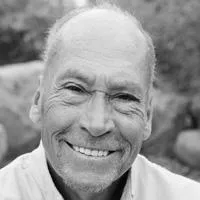

PET HEALTH ARTICLES

Retirement: The Ultimate “Do It Yourself” Project
Your retirement is the product of your creation. There isn’t a one-size-fits-all approach or a single best way to live retirement. There is only your way. Retirement doesn’t come framed and ready to hang on the wall for your enjoyment and appreciation. Instead, it arrives in pieces in a plain, nondescript box. Inside are your past experiences, knowledge, skills, interests, contacts, and ideas. In other words, you’ll discover retirement isn’t a Rembrandt ready to be admired; it’s a jigsaw puzzle ready for you to assemble. Although well-intentioned, your “thirty-something” financial advisor may offer suggestions as to what your puzzle should look like, but it’s up to you and you alone to arrange the pieces.
Many approaching retirement age fall into the trap of thinking it’s easy. All you do is stop going to work and start doing whatever you want, right? What could be easier than that? Nonetheless, many will find the retirement transition to be one of life’s most difficult experiences.
Leaving a career behind is painful, though not necessarily in the way you’d expect. The pain doesn’t reveal itself immediately upon leaving the job. Why? Because at the time you leave the demands of work behind, you have a pent up demand for free time. This free time will allow you to engage in activities you have not had time for previously. Long delayed travel, visits to the grandkids, long lunches, and/or discovering pickleball will keep your life very busy. But no matter how you spend your new-found time, you might find yourself too distracted to plan the life you want to live in retirement. Sadly, many deploy a strategy of taking it as it comes, deciding to “play it by ear.” In my experience, this approach will simply prolong the distractions that will continue as long as there are boxes on your to-do list to be checked.
To be clear, there is nothing wrong with incorporating leisure activities into your retirement (after all, it’s what you’ve worked for). However, over time, it will become painfully clear that retiring to a life of leisure isn’t a sustainable strategy. Sooner or later, you will be confronted by haunting questions: Now what? Is this it?
We are human beings. We are creatures that must have meaning and purpose in life. Despite our best efforts, purpose can’t be found through doing. Ultimately, we have to have a purpose for being. If we don’t find purpose, the world will close in around us, allowing misery to consume our retirement and leaving depression in its wake.
Robert Laura, a noted retirement coach, explained it this way: “Probably the biggest thing we try to teach those preparing for retirement is that you’re going to lose more than you gain. You need to think about how you’re going to replace what you have lost.” Without rediscovering hobbies or cultivating social activities, it will be easy to lose your sense of purpose, which will inevitably take a toll.
John D. Rockefeller, Jr., the famed industrialist and philanthropist of the early twentieth century, had this to say: “Giving is the secret of a healthy life—not necessarily money, but whatever one has of encouragement and sympathy and understanding. Real joy comes not from ease or riches or from the praise of others but from doing something worthwhile.”
So assume you want to put Mr. Rockefeller’s secret to the test after reaching a point when you feel ready to balance retirement doing with retirement being. Where do you begin? While there are abundant opportunities, you must find one that works for you. Remember, when it comes to retirement, the easy part is retiring “from something.” The hard part is “retiring to” something. If you should find yourself stuck, wondering where you can make a contribution, consider the following:
Assemble a list of nonprofit organizations in your community. Make an appointment to meet their leaders to determine if their mission matches your passion. Most nonprofits need help and will welcome you.
Prepare a list of experiences and skills you acquired in your career and share it with those with whom you interact (leverage your network and those they know).
Remain open to opportunities to learn. Many community colleges and universities sponsor education programs geared particularly for seniors, which will help you expand your network with like-minded individuals.
Learn about the issues facing your community. Attend a meeting of the city council, planning commission, or school board. Consider what areas need attention and how you might contribute. You’ll find there are always more needs than there are people willing to help.
The bottom line is this: retirement is a gift to a fortunate few. It is meant to be shared, and when it is shared, an incredible force is released that can help make the world better and can help you in the process. Not surprisingly but predictably, you will find a joy-filled, satisfying retirement and still have time to do what you want.
